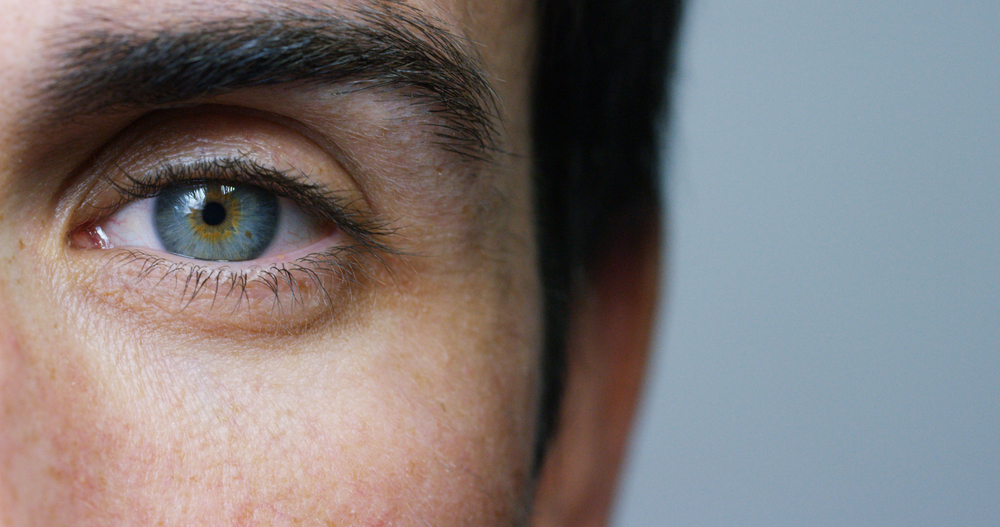The Importance of Addressing Eye Health: Insights from an Integrative Optometrist

According to Neda Gioia OD, CNS, FOWNS, CFMP, eye health and overall health are interrelated; something as simple as dry eye disorder can indicate a deeper issue.
“The problem right now is that in our healthcare system, we miss the mark on trying to find the root causes of these issues,” said Dr. Gioia. “What's happening to the eye is often a symptom of a more widespread problem, and we can use the eye to start investigating that.”
Dr. Gioia, an integrative optometrist in Shrewsbury, New Jersey, and President of the Ocular Wellness Nutrition Society, is on a mission to bring integrative medicine into optometry and make it standard practice.
What is Integrative Optometry?
An integrative care model for optometry goes beyond standard practices by deeply investigating patients' health histories, explained Dr. Gioia, who is also a certified nutritionist. In her practice, Dr. Gioia asks detailed questions about lifestyle factors like stress, exercise, and diet that could contribute to eye problems.
“In the conventional healthcare model, there's a massive disconnect when it comes to nutrition and lifestyle medicine education,” said Dr. Gioia. “But if the eye care professional is comfortable walking a patient through those approaches, there is no reason why they shouldn't be embarking on and helping the patient in that journey because someone has to step up to the plate.”
She explained that an integrative approach to optometry may also involve using functional medicine to identify and address potential nutritional deficiencies and other health markers that could result in ocular symptoms, such as polymorphisms affecting cellular and mitochondrial function. “Ultimately, the ocular tissue has a very fast turnover,” Dr. Gioia said. “So metabolic and mitochondrial health is something we always have to think about.”
Regardless of whether an eye specialist is comfortable addressing lifestyle factors with their patients, teaming up with other specialists is crucial for truly dynamic care. This is why Dr. Gioia collaborates with a wide range of experts, including other integrative specialists and even yoga studios.
How to Support Your Patients' Eye Health
Equally important, Dr. Gioia said, is for integrative practitioners of other specialties to be educated about eye health and know when to refer a patient to an optometrist.
Discussing basic preventative measures for eye health with patients, especially those who are younger, should be standard practice, she explained. For instance, in addition to preventing sun damage on the skin though sunscreen, practitioners should also be stressing the importance of sunglasses to maintain eye health.
“Ultraviolet-A (UVA) and ultraviolet-B (UVB) protection within the sun lens is recommended,” Dr. Gioia said. “Those are essential, especially for outdoor activities and environments with excessive UV exposure, such as situations with bounce effects from water or snow.”
Another common question Dr. Gioia gets is about how blue light impacts eye health. She said that while the direct tissue damage from blue light remains under scientific scrutiny, its impact on sleep patterns, circadian rhythms, and mental health is significant and well-recognized.
To combat the effects of blue light, she stressed the role of antioxidants found in foods, which can neutralize the damaging effects of blue light. She recommended a diet rich in antioxidants, specifically mentioning lutein from egg yolks and green leafy vegetables and zeaxanthin from bell peppers, as they have a direct correlation with eye health.
Smoking and even vaping can also have negative impacts on eye health. “Dr. Gioia highlighted the significant impact of smoking on eye health, noting, "The disparity in the incidence of cataracts and macular degeneration between smokers and non-smokers is substantial. Age-related macular degeneration is one of the leading causes of blindness in individuals over the age of 65." She also expressed concern over the rise of vaping, especially among younger people, emphasizing the importance of addressing this trend due to its potential risks to ocular health.
Practitioners should also keep their patient's eye health in mind while prescribing medications. Dr. Gioia explained that certain drugs and even supplements can have adverse effects on the eyes, including:
Autoimmune Medications: Medications like Plaquenil, commonly used in autoimmune treatments, can accumulate within the eye and potentially lead to vision loss.
Steroids (e.g., Prednisone): Long-term use of steroids is linked to an increased risk of developing glaucoma and cataracts.
High-Dose Vitamins: In particular, niacin can lead to niacin-induced cystoid maculopathy, where vitamin accumulation affects the macula of the eye.
Anti-Anxiety Medications: These can cause fluctuations in focusing and binocularity, affecting how vision coordinates between the eyes, which can disturb activities like computer use and reading.
When to Refer Your Patients to an Optometrist
While it’s standard for patients with metabolic conditions to get annual eye exams, according to Dr. Gioia, patients with other chronic conditions may also need a referral. Autoimmune disorders can cause ocular issues, such as dry eyes, which if treated early, can significantly reduce symptom severity. Dr. Gioia explains, "Diagnosing and treating early with preventative care, such as addressing clogged glands which can reduce oil production, allows us to improve symptoms and support patients throughout their autoimmune treatment journey."
Those with a history of cancer could also benefit from an eye appointment, according to Dr. Gioia. She explained that there is a risk of cancers metastasizing to the eye, as well as conditions such as melanoma found in the eye, which can remain undetected without regular eye examinations.
In addition, Dr. Gioia stressed the need for more regular eye exams in children, particularly given the rise in conditions like Attention-deficit/hyperactivity disorder (ADHD) and autism spectrum disorders. She explained that ocular issues are frequently missed in routine screenings and can significantly impact a child’s learning and quality of life.
“We even have a whole aspect of visual eye care that is based on vision therapy, which is kind of like physical therapy for your eyes,” Dr. Gioia said. “This can change kids' lives and improve other aspects of their learning capacity, especially if they have other diagnoses.”




















SHARE